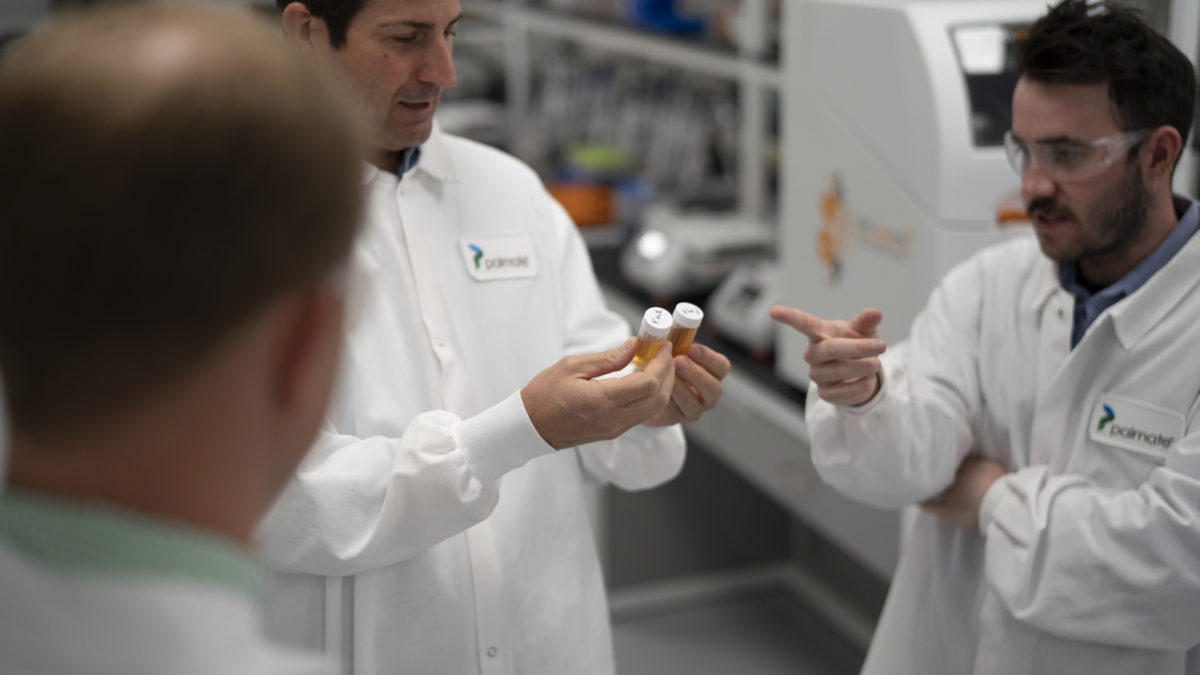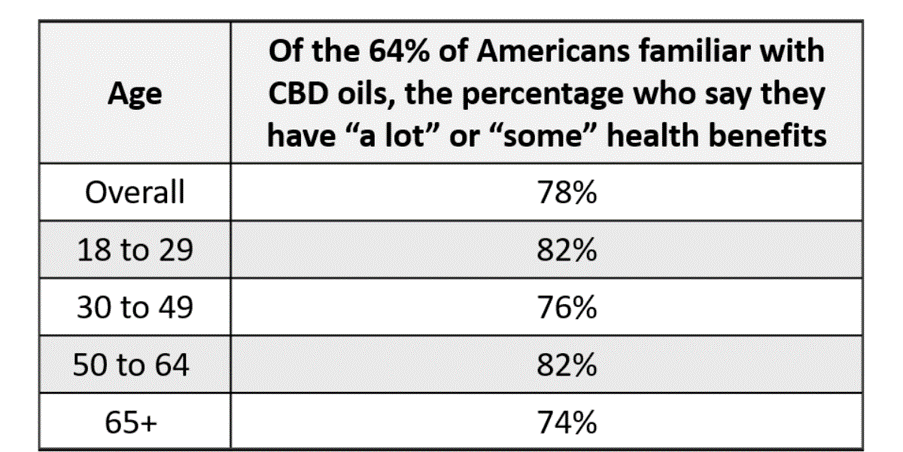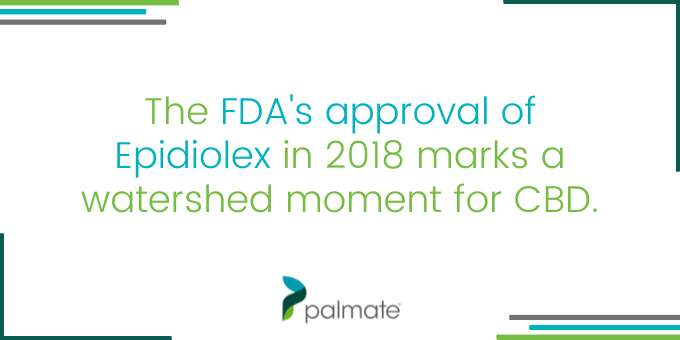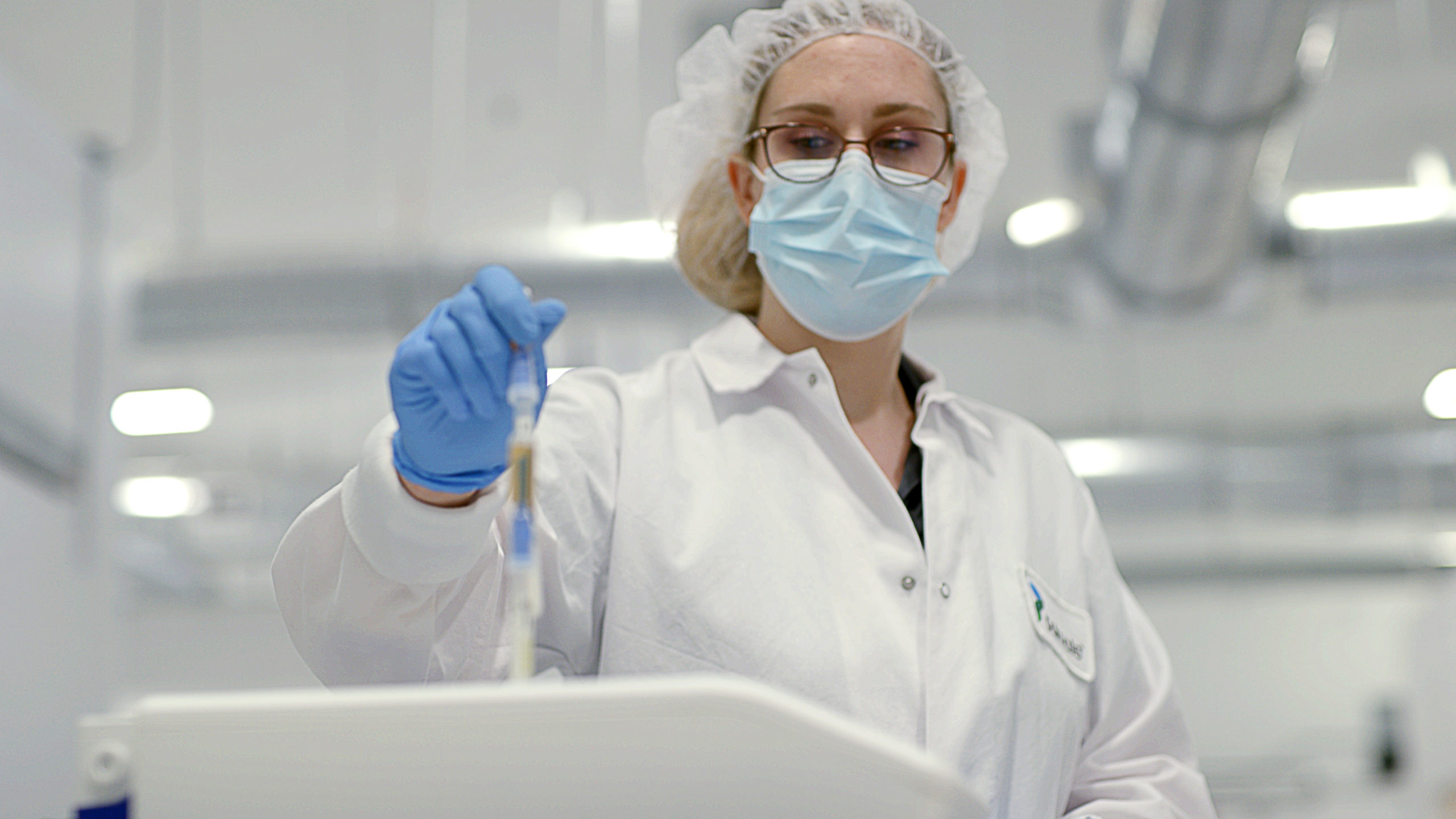
What We Really Know About CBD and Other Cannabinoids: 4 Perspectives to Help Businesses Cut Through the Noise
Hemp-derived CBD and other cannabinoids clearly do have market value (more on that below).
But if you’re a business watching from the sidelines, it can be hard to separate the noise and outrageous claims from true knowledge.
A great first step is to start with the basics. Here are four perspectives to help you more accurately understand CBD and other cannabinoids—as well as their bright future.

1. Cannabinoids are naturally occurring within the human body and that’s important for their potential
CBD (short for cannabidiol) is one of the most prevalent of more than a hundred naturally occurring cannabinoids in the cannabis plant. These are the key to the plant's wellness potential. But just why is there so much potential in cannabinoids, especially CBD? Here’s what we know:
Humans and other animals have an internal cannabinoid system. Research has shown that nearly all animals have an endocannabinoid system (ECS).
In humans and other mammals, the ECS includes receptors in the brain and throughout the body. It plays an important role in helping a variety of systems to function normally, everything from our cardiovascular and gastrointestinal systems to our central nervous and immune systems.

An endocannabinoid deficiency could be helped with plant-based cannabinoids. The factor above is especially important considering research from the early 2000s. Scientists found evidence that an endocannabinoid deficiency could be the underlying cause for numerous health conditions.
CBD’s unique characteristics make it especially attractive. What’s particularly important to note about CBD is that it doesn't induce a euphoric, sedative, or intoxicating state that gets people “stoned” or “high.” That would be CBD’s chemical cousin THC (tetrahydrocannabinol).
Thus, CBD is an especially compelling ingredient because it holds health and wellness potential but does not present the same types of controversies, and related complexities that come with THC.
2. The most reliable cannabinoid ingredients will come from suppliers who exceed minimum requirements
Right now there are numerous cannabinoid ingredient suppliers who meet the minimum requirements to have a food permit and produce cannabinoid ingredients. But doing as little as possible to operate is hardly a clarion call for quality.
Full disclosure: Palmate is a cannabinoid ingredient supplier and point No. 2 is especially important to us.
We think it’s crucial for businesses to understand that cannabinoid suppliers who take steps like the following are more likely to produce quality CBD ingredients that are, among other things, safer and more consistent:
They achieve actual certification. GMP certification is a perfect example of this point. The FDA established Good Manufacturing Practices (GMPs) to ensure the safety of consumable products. These were later updated to include robust risk analysis and preventive controls.

To achieve actual GMP certification demands considerable time, effort, and money. More specifically, GMP certification requires an authorized third-party auditor to verify a supplier’s adherence to GMPs and conduct procedures like these:
- Review batch records
- Examine extraction methods
- Confirm the supplier actually follows the procedures it claims to use
- Inspect the integrity of the supplier’s physical facility
The moral here? A company that achieves certifications such as GMP will be helping itself produce the best cannabinoid ingredients it can, which ultimately benefits you and your end product.
They register with the U.S. Food and Drug Administration (FDA). Cannabinoid suppliers aren’t required to register with the FDA. However, those who do are signifying their commitment to maintaining an open and honest business.
They’re also indicating they have confidence in their operations, internal safety protocols, and your quality assurance program. How? Because FDA registration opens up the possibility of an unscheduled, unannounced FDA inspection.
They demonstrate an open-door policy. Cannabinoid suppliers shouldn’t shy away from inviting customers and prospective customers to their facilities. In fact, they should go out of their way to establish an open-door policy.
For example, you should be free to tour your cannabinoid supplier’s facilities, examine batch records, watch production methods in action, and do whatever else you need to understand how they implement safety and quality standards.
If your supplier, or potential supplier, shows resistance to this, that could be a red flag.
For related info on CBD suppliers and best practices, see how they can demonstrate transparency.

3. People are open to new options for their well-being, and interest in CBD is growing significantly
The following examples indicate a groundswell of public interest in CBD:
People are both familiar with and have a favorable view of CBD. Consider this Gallup survey on CBD.
First, a clear majority of Americans (64%) say they are familiar with CBD oils. In addition, a high percentage of them believe CBD oils have either “a lot” or “some” health benefits. Note how these numbers span the generations: Source
Source
Consumer interest in CBD continues to gain traction for a variety of reasons.
Beauty consumers are looking specifically for CBD ingredients. People, women especially, are motivated to buy health and beauty products because of certain ingredients—and right now CBD is definitely among them.
The Benchmarking Company conducted a study of more than 4,700 female beauty consumers and found that 75% were familiar with CBD. More importantly, based on survey data, the consumer research company placed CBD on two of the resulting study’s top 10 lists:
- No. 6 for “trendy ingredients she’s using in products now.”
- No. 2 for “trendy ingredients she’d like to try, if not using now.”
Major organizations investing in CBD research serve as cultural bellwethers. Funding from a variety of sources has been flowing into CBD research for several years. However, when prominent organizations like the NFL and the NFL Players Association become involved, the public is much more likely to take notice.
In 2021, the committee representing the NFL and the NFLPA committed to providing $1 million to fund research into cannabinoids such as CBD.
4. The regulatory momentum is clearly on CBD’s side
CBD’s legal standing has yet to reach a crystal-clear state. However, businesses should understand that incremental regulatory developments like the following exemplify the undeniably positive momentum for the future of CBD:
Agricultural Act of 2014. CBD is derived primarily from hemp. This act helped to legally distinguish industrial hemp from marijuana, which are both cannabis plants. More specifically, it helped initiate pilot programs for cultivating industrial hemp legally.
Agriculture Improvement Act of 2018. Also known as The 2018 Farm Bill, the act exempted hemp and hemp-derived substances from the list of Schedule I drugs under the Controlled Substances Act.
To put that in perspective, it’s now legal to produce and consume hemp-derived CBD that contains less than 0.3% THC, a monumental step forward for CBD’s future.
Hemp Access and Consumer Safety Act. Yes, the aforementioned Farm Bill was profoundly important, yet regulatory ambiguity remains. But there’s encouraging news on that front as further legislation is actively pursued.
In fact, should the bipartisan Hemp Access and Consumer Safety Act become law, it will, according to the official news release, “ensure hemp-derived CBD products are regulated by the [FDA] like other legal products used in dietary supplements, foods and beverages—an action that is essential to protecting consumer safety and treating hemp producers fairly.”
CBD-based, FDA-approved Epidiolex. When the FDA approved Epidiolex in 2018, a CBD-based medication for treating two severe forms of childhood-onset epilepsy, it marked a watershed moment for CBD.

Epidiolex represents the first FDA-approved medicine derived from cannabis and has generated an added level of legitimacy to CBD’s profound wellness potential.
What you can do if you’re considering CBD for your business
There is tremendous promise in CBD—a common thread through all the perspectives above. But whether CBD could be the right move for your business requires careful consideration.
To continue your information-gathering efforts, reach out to a qualified CBD supplier, one committed to practicing business honestly and ultimately providing reliable, consistent, and premium cannabinoid ingredients.
Wondering how Palmate can provide cannabinoid ingredients that unleash the full potential of your products?
Related Posts
Recent Posts
- 7 Questions to Help You Find a Trustworthy CBD Ingredient Company
- Why CBD Companies Should Re-Examine Their Marketing Content—NOW
- Qualifying an Ingredient Supplier for Your CBD-Infused Beverage Products: 5 Crucial Questions to Ask
- The Logical Leap: 5 Reasons Why You Should Integrate CBD into Your Business
- GFSI-Recognized Certification: How Cannabinoid Ingredient Suppliers Can Help Manufacturers Succeed
Categories
- Best Practices (4)
- CBD and Business (3)
- Certifications (1)




